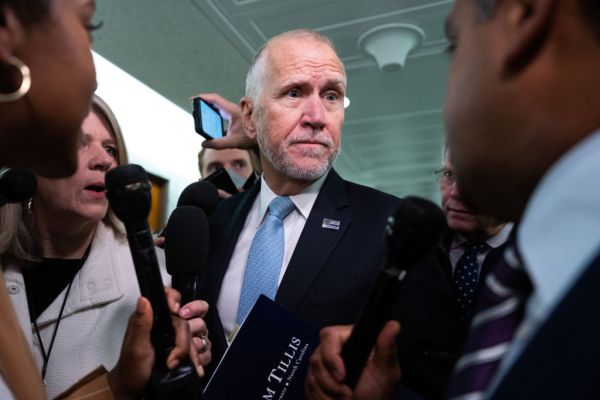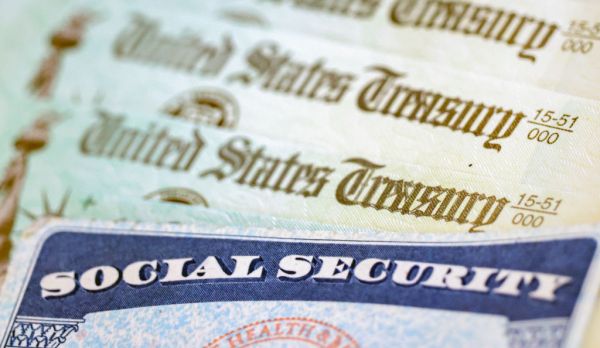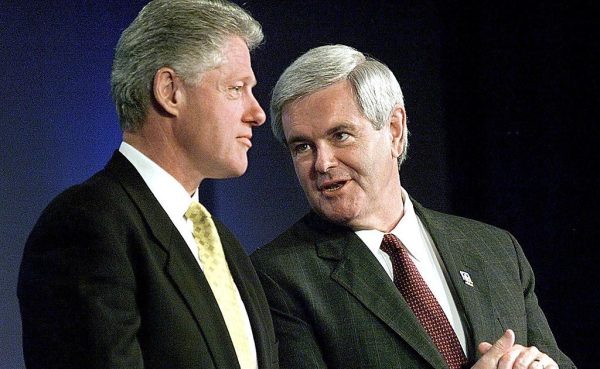Hello and happy Sunday. There was no shortage of news this week. As we said in the Wednesday edition of The Morning Dispatch, “What a week yesterday was.” We narrowly avoided an international crisis after two people in Poland were killed by a missile that struck Polish territory: Early reports indicated it was Russian but Poland and NATO later said that it was likely fired by Ukraine in response to a barrage of Russian attacks. Congressional Republicans chose their leaders for the upcoming term, nominating Kevin McCarthy to be speaker and retaining Mitch McConnell as Senate minority leader. But there was plenty of intrigue along the way. And there was more controversy swirling around Elon Musk’s takeover of Twitter than I can keep track of, much less summarize.
But hey, it’s the weekend. A great time to kick back, relax, and watch some football. Or futbol, if that’s your thing. If you’re not a sports fan, the biggest news you might have heard about the World Cup—which starts today—is that the Qatari government decided at the last minute not to allow alcohol sales at matches. That’s certainly a big headache for World Cup sponsor AB InBev and a disappointment for anyone who wanted a crisp, cool Budweiser while watching soccer in 120 degree weather. But it’s hardly the only problem with Qatar hosting one of the world’s most prestigious sporting events.
The decision by FIFA, the international governing body for soccer, to award Qatar the 2022 World Cup, was met with derision and scrutiny way back in 2010 when it was announced. As a practical matter, Qatar is a tiny country that then lacked the necessary infrastructure—stadiums, hotels, roads, even a big enough airport—to stage such an event. But even more important, the emirate has a terrible human rights record regarding freedom of expression, the legal system, and the rights of women and LGBT individuals. And then there is the migrant labor situation. Foreigners who move to Qatar to work often have their passports confiscated, so they can’t leave. They become essentially forced labor, unable to do anything about wages that were lower than promised and sometimes delayed. (This Amnesty International report has a lot of gruesome details.)
Without that migrant labor, Qatar would not have been able to build the stadiums and other facilities it needed to pull off the tournament. And so it was especially galling (but not particularly surprising) to read about FIFA President Gianni Infantino’s press conference on the eve of the tournament. “Europe could do as Qatar did,” in regards to migrant labor, he said. “Create some channels, some legal channels, where a number of those workers could come to Europe. Low revenues. But give them some work, some future, some hope.”
Actual numbers are impossible to know, but estimates from human rights groups suggest that thousands of workers died in the preparations for the World Cup.
In response to follow-up questions on migrant labor, Infantino claimed, “We are in a sovereign country. Do you think FIFA can go to England or Italy and say ‘we will establish a system for migrant workers in your country’?” Well, no. But it’s beyond insulting to suggest that FIFA bears no responsibility. It was under no obligation to award the event to Qatar in the first place.
I am an unabashed fan of sports in general. I spent the first part of my career as a sportswriter, and I consider athletes as artists in a kind of way. That an athlete’s tool is a ball or racket instead of a painter’s brush or musician’s violin shouldn’t diminish the beauty that can be found in a bicycle kick for a goal or a touchdown pass that slices through a crowd of defenders like a precision laser. I’m even a sucker for the sentiment that events like the Olympics and other competitions can be unifying, bringing together people from different nations and cultures.
But too often, countries seek out the prestige of such competitions for their own purposes. It’s not a new phenomenon, in case you’ve forgotten that Hitler’s Germany hosted the 1936 Olympics. Russia hosted the Winter Olympics in February 2014, and began its annexation of Crimea while the games were going on. Earlier this year, China staged the Winter Olympics despite calls for boycotts over the dictatorship’s human rights abuses in Hong Kong and Xinjiang province.
The leaders of organizations like FIFA and the International Olympic Committee hold tight to the notion that they can effect positive change by awarding events to dictators and human rights abusers. And they also hold tight to their wallets: Allegations of bribery were widespread when FIFA announced Qatar as host, and it’s hard to believe there weren’t ulterior motives in awarding the tournament to a country the size of Connecticut where temperatures regularly top 100. In this case, it seems to be a deadly combination.
On that cheery note, let’s turn to our best stuff from the week. Thanks for reading.
As we’ve noted, Trumpism took a bath in the midterms. Election deniers and other Trump-aligned candidates lost or underperformed, while Republicans who ran on legislative accomplishments or policy goals were more successful. So, naturally, the first order of business for the new GOP majority in the House was to announce an investigation into … Joe and Hunter Biden. A more serious party might have put an investigation into the Afghanistan withdrawal or the origins of COVID higher up on the list, but, as Nick notes in Boiling Frogs (🔒), seriousness isn’t the point anymore. He explains that the narrow majority means that small factions within the party can have outsize influence by extracting concessions in return for their support. And right now, Kevin McCarthy has his hands full with what Nick calls the Very Online Caucus—politicians like Marjorie Taylor Greene, Matt Gaetz, and Jim Jordan— which “understands that partisan warfare, not policy, preoccupies the imagination of its fan base.” Our closely divided electorate makes this worse. “One might think the case for persuasion is never stronger than when peeling off just a few points from the other side might mean total control of government. Play to the middle! In reality, though, the ongoing stalemate makes both parties risk-averse and paranoid about disappointing their bases.”
They aren’t going anywhere quite yet—Nancy Pelosi is stepping down from leadership but sticking around for now and Mitch McConnell will remain Senate minority leader after weathering a challenge from Rick Scott—but it’s a fitting time to look back on the legacies of the duo who Chris ranks among Congress’ “strongest leaders of all time.” In Stirewaltisms (🔒), he discusses the parallels in their careers—they came to power within a few years of each other and at similar ages, during an era that was much more focused on legislative concerns rather than performative partisanship—as well as their divergences. Pelosi, for example, “ruled with a combination of blunt force and a well-funded favor bank even after reversals, while McConnell maintains his position by a combination of deference to his fellow Republican members and fearsome political acumen.” (For more on Pelosi, check out the Friday edition of Uphill (🔒) from Haley.)
The midterms were disappointing for Republicans, but not a total loss: They did earn a small majority in the House. A good portion of the margin can be credited to pickups in one state—New York. How did that happen? Audrey is on the case. She explains that it started with redistricting, when Democrats drew a map that was a little too favorable and it got tossed out in court. Crime was an issue that resonated with voters, and incumbent Gov. Kathy Hochul played the issue poorly. Hochul still beat GOP nominee Rep. Lee Zeldin, but as Audrey writes, “Zeldin’s 5-point loss to Hochul marked the strongest Republican gubernatorial performance in two decades. And Republicans … credit Zeldin for pushing other GOP candidates across the finish line.”
There are plenty of legitimate arguments against the ploy by some Democrats to fund the primary campaigns of Trumpy, extreme right-wing candidates in hopes of setting up an easier general election contest. But … it worked. So Kevin has a few words for the Republican voters who fell for it: “The best kind of mark for a con artist is a dumb person who thinks he is smart—or a smart person who isn’t quite as smart as he thinks he is. The right-wing populists who got behind these Democrat-funded candidates knew what they were doing—it wasn’t a secret who was controlling the money that was deciding those primary races. But they went along with the con, turning out in the primaries to elect the people the Democrats spent tens of millions of dollars trying to support. That’s because they believe their own bull.”
And a few more things you might have missed:
- She wasn’t even on the ballot, having lost her primary back in August, but Liz Cheney might have had the last laugh in the midterms. In Boiling Frogs (🔒), Nick writes that “a small yet meaningful contingent of right-leaning MAGA skeptics are making the difference for Democrats in close elections where Trumpy candidates are on the ballot.”
- It wasn’t all midterms and future of the GOP this week. In The Current (🔒), Klon writes about how China’s rise as an economic and technological power was dependent upon on theft and espionage, and that it’s been going on for a very long time.
- In his long quest to become speaker, Kevin McCarthy has coddled and appeased some of the loonier members of the House GOP conference. Now he’s closer to getting what he wants and … those members have some demands. In the Wednesday G-File (🔒), Jonah allows himself a few chuckles.
- Reporting from Istanbul, Charlotte explains why the terror attack that killed six people on November 13 has complicated relations between Turkey and the United States.
- And the pods: On Advisory Opinions, David and Sarah go long to discuss student loans, gay marriage legislation, and more. Now that Donald Trump has announced his candidacy, The Dispatch Podcast jumps right into the Trump vs. Ron DeSantis battle. If you found the news of the week too stressful or frustrating, check out Jonah’s solo Remnant and listen to the end, where he offers thoughts on hope and optimism. And last but not least, Eric Costanzo, a Southern Baptist pastor from Tulsa, Oklahoma, joins David and Curtis Chang on Good Faith to discuss refugees and immigrants.









Please note that we at The Dispatch hold ourselves, our work, and our commenters to a higher standard than other places on the internet. We welcome comments that foster genuine debate or discussion—including comments critical of us or our work—but responses that include ad hominem attacks on fellow Dispatch members or are intended to stoke fear and anger may be moderated.
You are currently using a limited time guest pass and do not have access to commenting. Consider subscribing to join the conversation.
With your membership, you only have the ability to comment on The Morning Dispatch articles. Consider upgrading to join the conversation everywhere.